The benefits of using coir grow bags in horticulture and agriculture are numerous:
Coir grow bags are also cost-effective compared to other growing media, as they require less irrigation and fertilisation, resulting in reduced water and fertiliser costs.
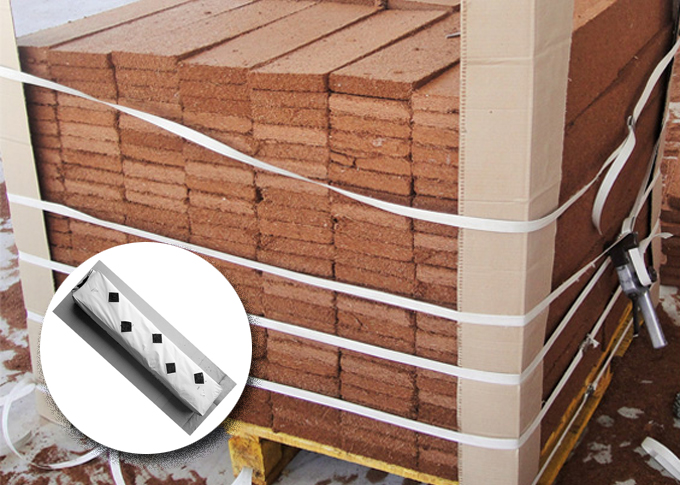
Twisted coir, derived from matured brown coir fibre, is a versatile material used in the manufacturing of rubberized coir mattresses, cushions, carpet underlays, seat cushions, and drainage pipe insulation. It is available in 30 kg, 100 kg, and 150 kg coils.
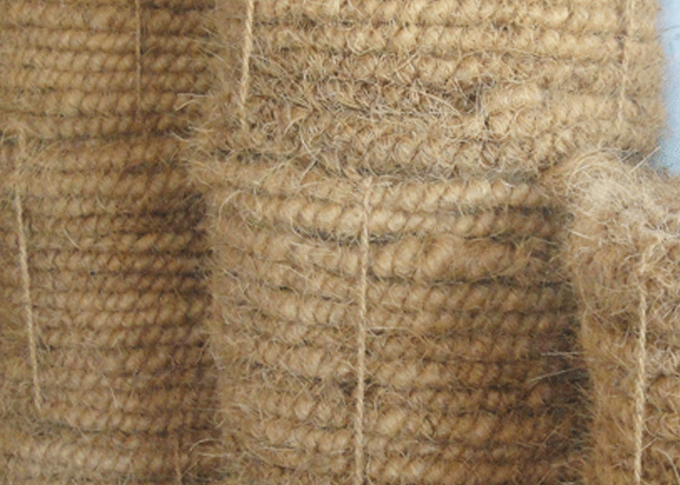
Coir geotextiles find extensive use in civil engineering applications, such as slope stabilization on hill slopes, embankments for roads and railways, and more.
Installation of coir geotextiles is simple and easy, and they can withstand human and animal movement without any deterioration.
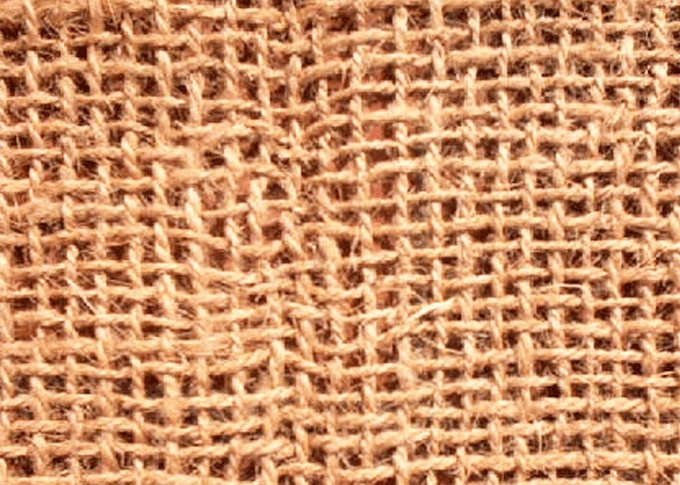
Available in sizes
|
|
|
|
|
(900 GMS) |
(700GMS) |
(400GMS) |
1 M X 50 M to 4 m x 50 m.
Densities :
400 to 1400 GSM
A range of different mesh matting with varying densities are available depending on the landscape design, water flow, soil structure, steepness of slope, vegetation requirements etc.
Coir fiber has several advantages over traditional materials used in gardening. Firstly, it is highly durable and can withstand exposure to the elements like sun and rain. It is also resistant to pests and diseases, making it a popular choice among organic gardeners. Additionally, coir fiber is highly absorbent and retains water, making it an ideal choice for use in potting mixes and as a soil amendment. It also provides excellent aeration to the soil, promoting healthy root growth.
Overall, the versatility and eco-friendliness of coir fiber make it an excellent choice for a wide range of garden articles, providing gardening enthusiasts with an environmentally sustainable and effective option for their gardening needs.
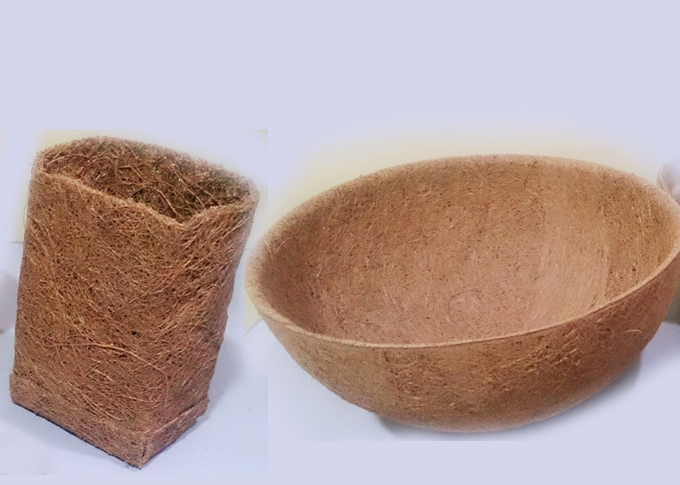
Brown coir is a versatile material with various applications. It can be used to make rope, floor mats, doormats, brushes, mattresses, floor tiles, twine, and sacking. Additionally, pads of curled brown coir fibre can be shaped and cut to fill mattresses.
Many brown coir pads are treated with rubber latex to create rubberized coir, which is a popular choice for upholstery padding in the automobile industry.
White coir, on the other hand, is known for its strong resilience to salt water and is commonly used to make fishing nets.
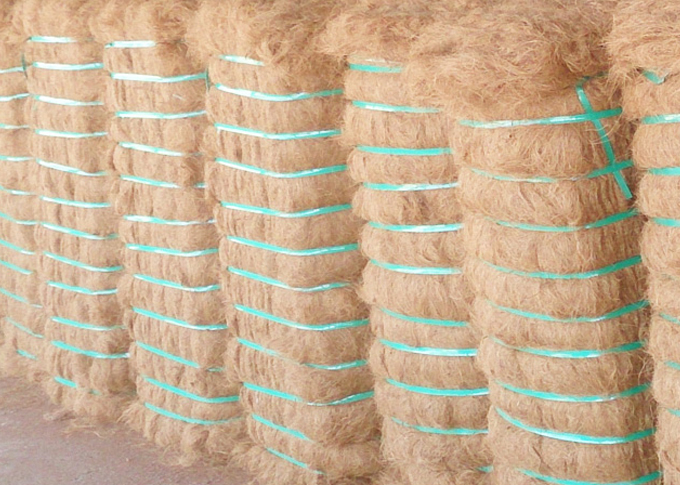
Coco Peat is renewable, biodegradable, and can be used as a sustainable alternative to peat moss, which is often harvested from non-renewable sources. It also has a lower carbon footprint than other growing media, as it is produced using a waste product that would otherwise go to landfill.
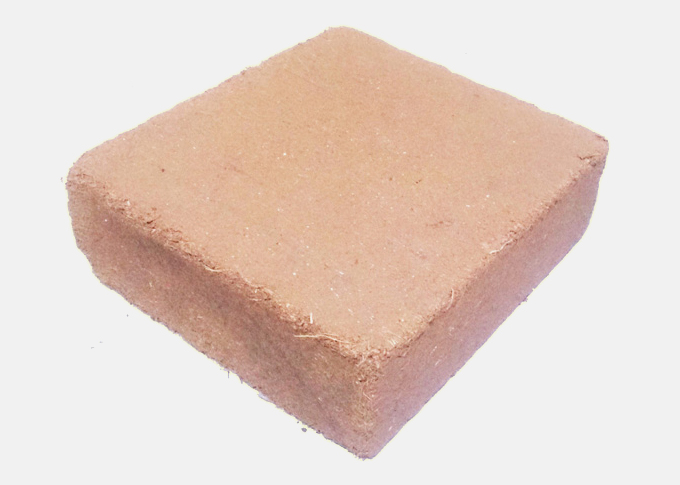
Coco peat is also highly absorbent and can be used to absorb oils and liquids in industrial settings, such as on roads or in factories. It is a popular choice among horseback riding clubs and animal farms for its ability to absorb urine and animal residue, promoting a cleaner and healthier environment for the animals.
Coco Peat is available in compressed Bales/Briquettes for convenience in handling and savings in cost of transportation
Coco Peat Bales
Shrink Wrapped
Size of bale |
30 x 30 x 15 cm |
Weight per bale |
4.5 kgs to 5 kgs. |
Volume |
68-80 Ltrs. |
Compression Ratio |
5: 1 |
Coco Peat Briquettes
Shrink Wrapped
Size of briquette |
20 x 10 x 6 cms |
Weight of briquette |
650 gms |
Volume |
10 to 11 Ltrs |
Compression Ratio |
8 : 1 |
Loadability in a 40' HC Container
(Palletized - Approx)
Bale of 5 kg. |
22 M. tones or 4400 Bales |
Briquette of 650 grams |
24 M. tones or 36,500 Briquettes |
Coconut husk chips are a versatile and sustainable growing medium with many benefits for a variety of plants, including Orchids, Bromeliads, Anthuriums, Gerberas, and Roses.
Here are some of the advantages of using coconut husk chips:
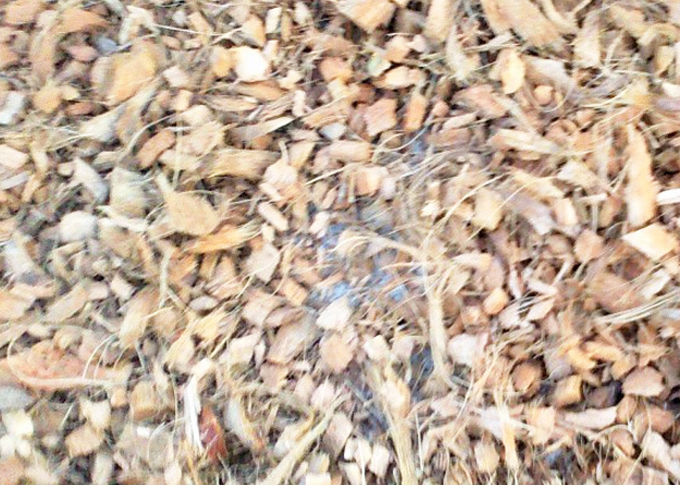
Coco Coir husks are available in different sizes:
Small |
1/4 to 1/2 inch |
Medium |
1/4 to 1/2 inch |
Large |
3/4 to 1 inch |
Fine |
2 mm to 4 mm |
Orchid Mix |
Small with 20 % Coco peat |
Our product is thoroughly washed and tested to ensure it meets a maximum electrical conductivity (EC) level of 0.5 MMHOS/cm.
The size of each bale is 31cm x 31cm x 31cm, making it easy to handle and store.
For shipping, a 40 ft high cube container can hold up to 1700 palletized bales or 1800 non-palletized bales, providing you with flexibility based on your specific requirements.
We take pride in our quality control processes and are committed to delivering a reliable and consistent product to our customers.
Coco Logs for Shoreline and Stream Bank Stabilization
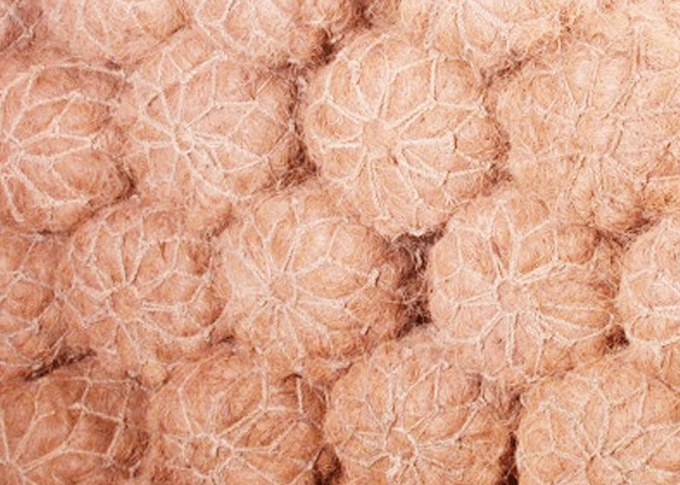
Technical Specifications:
Note: The maximum weight of the fiber that can be filled in each log is as shown above.
Loadability in 40 ft H.C Container (approx):
30 cm dia log - 200 logs = 800 RM
40 cm dia log - 110 logs = 440 RM
50 cm dia log - 75 logs = 300 RM
40 x 40 coco wall - 88 walls = 352 RM
Diameter |
Length |
Weight |
Density |
Outer Mesh |
30 cm |
4 mtr |
36 kgs |
9 lbs/cu. ft |
2"x2" |
40 cm |
4 mtr |
64 kgs |
9 lbs/cu. ft |
2"x2" |
50 cm |
4 mtr |
96 kgs |
9 lbs/cu. ft |
2"x2" |